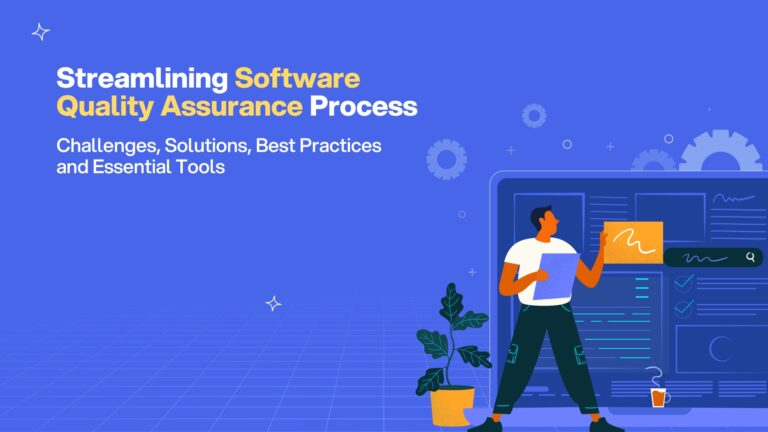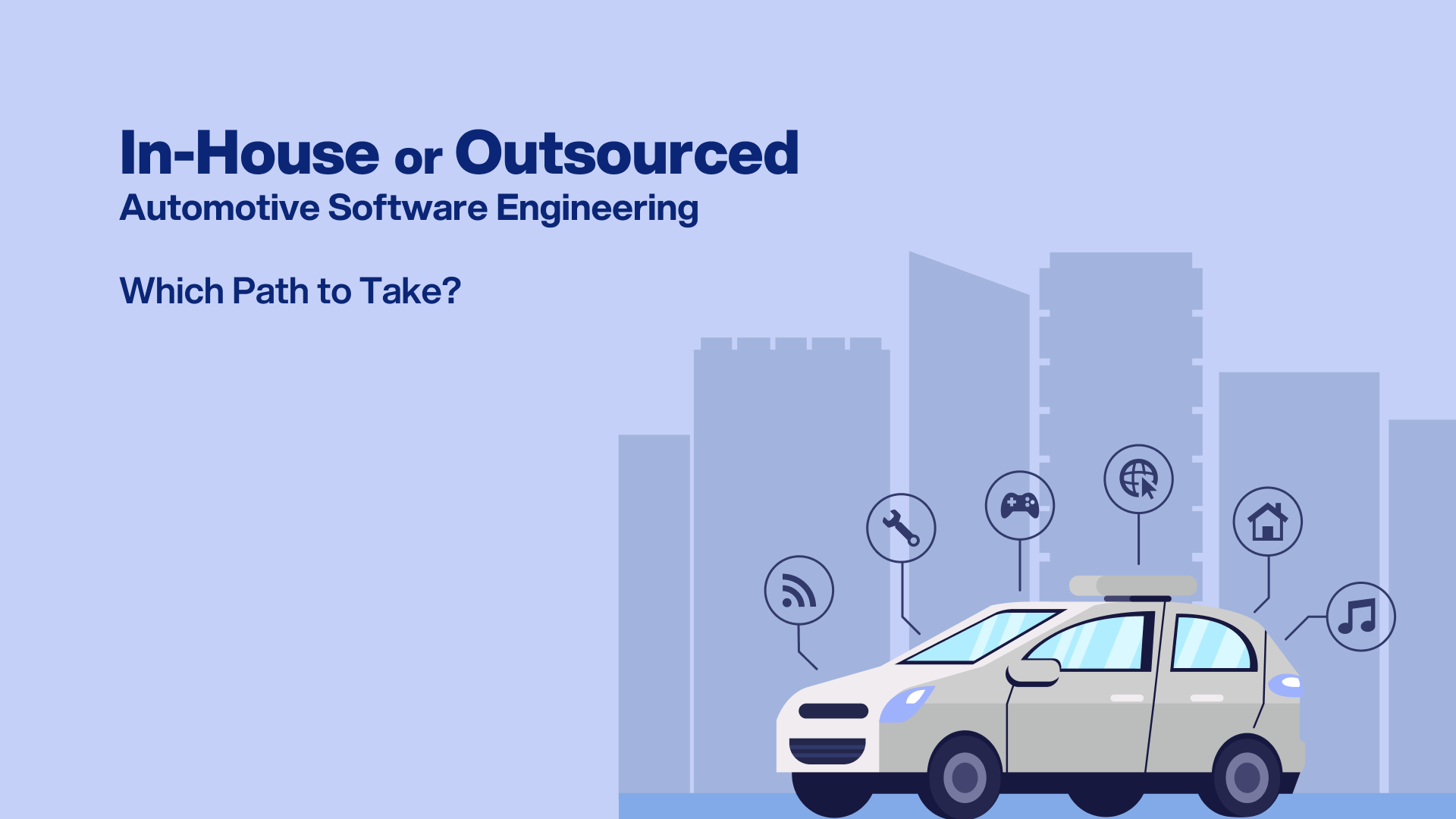
Contents
Software QA is the process of testing a software application to ensure it meets requirements and functions correctly. It involves running the software under controlled conditions to find and fix bugs. This ensures the software works as expected. This process checks the quality, functionality, and performance of a product before release. Additionally, it makes sure the product is error-free, user-friendly, and ready for the market. QA teams help developers catch and fix issues early, preventing costly mistakes and improving user experience. However, they face challenges like complex testing environments, tight deadlines, and evolving technologies, which can slow testing and increase costs. To overcome these hurdles, organizations need efficient QA processes, automated testing tools, and collaborative platforms to maintain software quality while staying agile.
Major QA Testing Challenges and Solutions
- Time Constraints and Rapid Release Cycles
Intense competition and pressure to release software quickly can result in compromised quality due to rushed testing. The solution lies in prioritizing testing efforts and optimizing processes through agile development methodologies. Agile development empowers a team to respond rapidly and effectively to any circumstance, ensuring that quality is not compromised for the sake of speed. - Complex Software Systems
Modern applications are progressively complex, with diverse integrations and functionalities. Using modular testing strategies can be a method to manage this complexity. Think of it as building with LEGO blocks—each module is tested individually and then integrated to form a robust structure. Effective test case design techniques and advanced testing tools can ensure that no element is overlooked. - Evolving Technologies and Platforms
Technologies are constantly evolving and require us to continuously learn and adapt. To maintain a competitive advantage, it is imperative to invest in continuous training and certifications. Furthermore, utilizing cloud-based testing solutions can offer the adaptability and scalability required to acclimate to changes rapidly and proficiently. - Inadequate Test Coverage
Inadequate test coverage can lead to undetected bugs and vulnerabilities, jeopardizing the software’s reliability and user experience. Robust test case design techniques such as equivalence partitioning and boundary value analysis can be a solution to this issue. Prioritize critical functionalities and use code coverage tools to ensure thorough testing. - Test Environment Challenges
Unreliable or inconsistent test environments can negatively affect test execution and the reliability of results. To ensure consistency and reliability, and to create a stable platform for testing, it is essential to establish well-defined test environments and automate environment provisioning.
Find Your Perfect Software Outsourcing Partner
Unlock a world of trusted software outsourcing companies and elevate your business operations seamlessly.
Discover CompaniesBest Practices for Streamlined QA
- Prioritize Testing Efforts
Prioritize testing high-risk areas. This saves time and prioritizes critical functionalities. - Automate Testing
Automate repetitive tasks to allow human resources to focus on more complex problem-solving. Automation tools can manage simple tasks, allowing employees to focus on more demanding work. - Use Modular Testing Strategies
Break down complex systems into manageable modules. Test each component individually, then integrate them to ensure the entire system functions seamlessly. - Leverage Advanced Testing Tools
Procure advanced testing tools that provide comprehensive coverage and facilitate efficient testing. These tools can significantly enhance the quality of the QA process. - Monitor and Adapt
Regularly review the testing process and results. Adapt strategies based on findings and feedback to maintain a relevant and effective QA process.
Essential Tools and Technologies for QA Process Enhancement
In order to maintain a competitive advantage, it is essential to establish a collection of robust tools and technologies that can guarantee quality and accelerate development. These tools have the potential to optimize processes, improve efficiency, and elevate the overall quality of software products.
Selenium
Selenium is an open-source project encompassing a range of tools and libraries that facilitate browser automation. It provides a playback tool for authoring functional tests across most modern web browsers, eliminating the need to learn a test scripting language (Selenium IDE). It also provides a domain-specific language (Selenese) for testing purposes to write tests in a number of popular programming languages, including JavaScript (Node.js), C#, Groovy, Java, Perl, PHP, Python, Ruby, and Scala. Selenium is compatible with Windows, Linux, and macOS. It is open-source software released under the Apache License 2.0.
Selenium, an open-source automation framework designed for web applications, allows testers and developers to automate browser interactions and conduct functional testing. With versatile tools like WebDriver, Selenium supports various programming languages and facilitates cross-browser testing, making it a preferred solution for efficient and scalable web automation.
Kobiton
Kobiton is a mobile testing platform that enables developers and QA teams to test mobile applications on on-premise devices. Designed for developers, testers, and QA professionals, this tool increases test accuracy and operational efficiency by enabling assessments on physical devices. It resolves prevalent testing issues like device availability, diversity, and mimicking real-world conditions. Notable features include access to actual devices, insights into application performance, and integration with a variety of development tools.
Kobiton provides a mobile device cloud, scriptless mobile test automation, and device lab management for comprehensive software QA. Designed for both developers and QA professionals, it enables testing across multiple operating systems, including Android devices. Kobiton enhances the efficiency of mobile app testing by mitigating prevalent issues such as inaccurate test results and manual testing errors. Its key features include real device testing, integration with CI/CD tools, and a versatile testing cloud.
Jira
Jira is a software product developed by Atlassian that facilitates bug tracking, issue tracking, and agile project management. A large number of clients globally uses Jira for project, time, requirements, task, bug, change, code, test, release, and sprint management.
TestRail
TestRail is a web-based test management tool used by testers, developers, and other stakeholders to manage, track, and organize software QA efforts. It adheres to a centralized test management structure that facilitates clear communication and enables the rapid development of tasks across the QA team and other stakeholders.
Appium
Appium is an open-source automation tool used for running scripts and test native applications, mobile-web applications, and hybrid applications on Android or iOS devices using a webdriver.
Jenkins
Jenkins is an open-source automation server that allows developers around the world to reliably build, test, and deploy their software. It is a premier open-source automation server that offers hundreds of plugins to facilitate the building, deployment, and automation of any project.
Jenkins is a versatile automation server that supports Continuous Integration and Continuous Delivery, functioning as either a simple CI tool or a robust CD hub. It is easy to install, being a self-contained Java-based program compatible with various operating systems. Configuration is straightforward through its web interface, which includes real-time error checks and built-in help. With an extensive plugin ecosystem, Jenkins integrates seamlessly with numerous CI/CD tools and is highly extensible. Its distributed architecture enables efficient workload distribution across multiple machines, accelerating builds, tests, and deployments.
Conclusion
Software QA is a critical process that ensures the quality, reliability, and functionality of software applications before they reach end users. By addressing key QA challenges, such as time constraints, evolving technologies, and inadequate test coverage—organizations can enhance their software development lifecycle. Implementing best practices like prioritizing testing efforts, automating repetitive tasks, and leveraging advanced tools such as Selenium, Kobiton, and Jenkins can streamline the QA process. As technology continues to evolve, a proactive and adaptive approach to software testing remains essential for delivering high-performing, user-friendly, and error-free applications.






